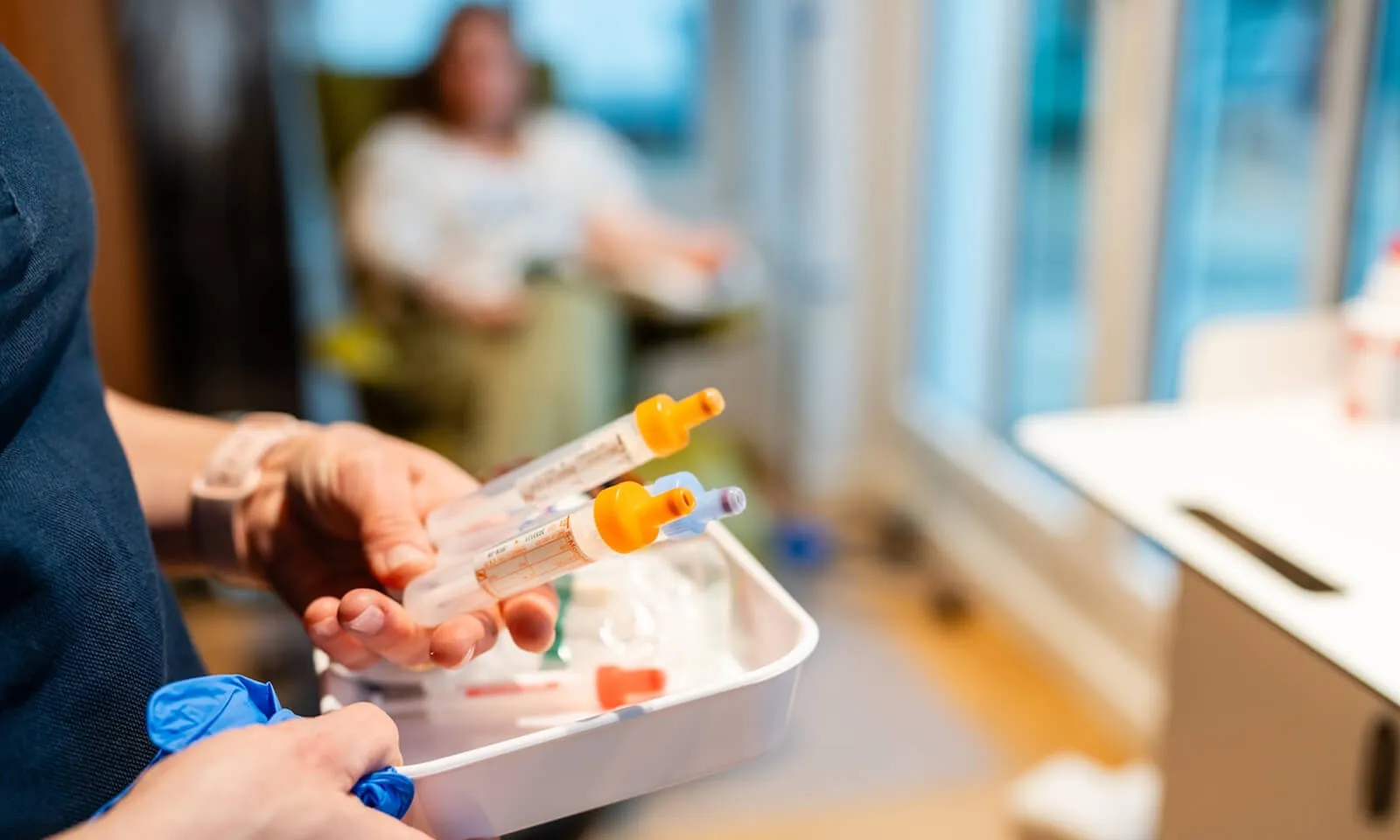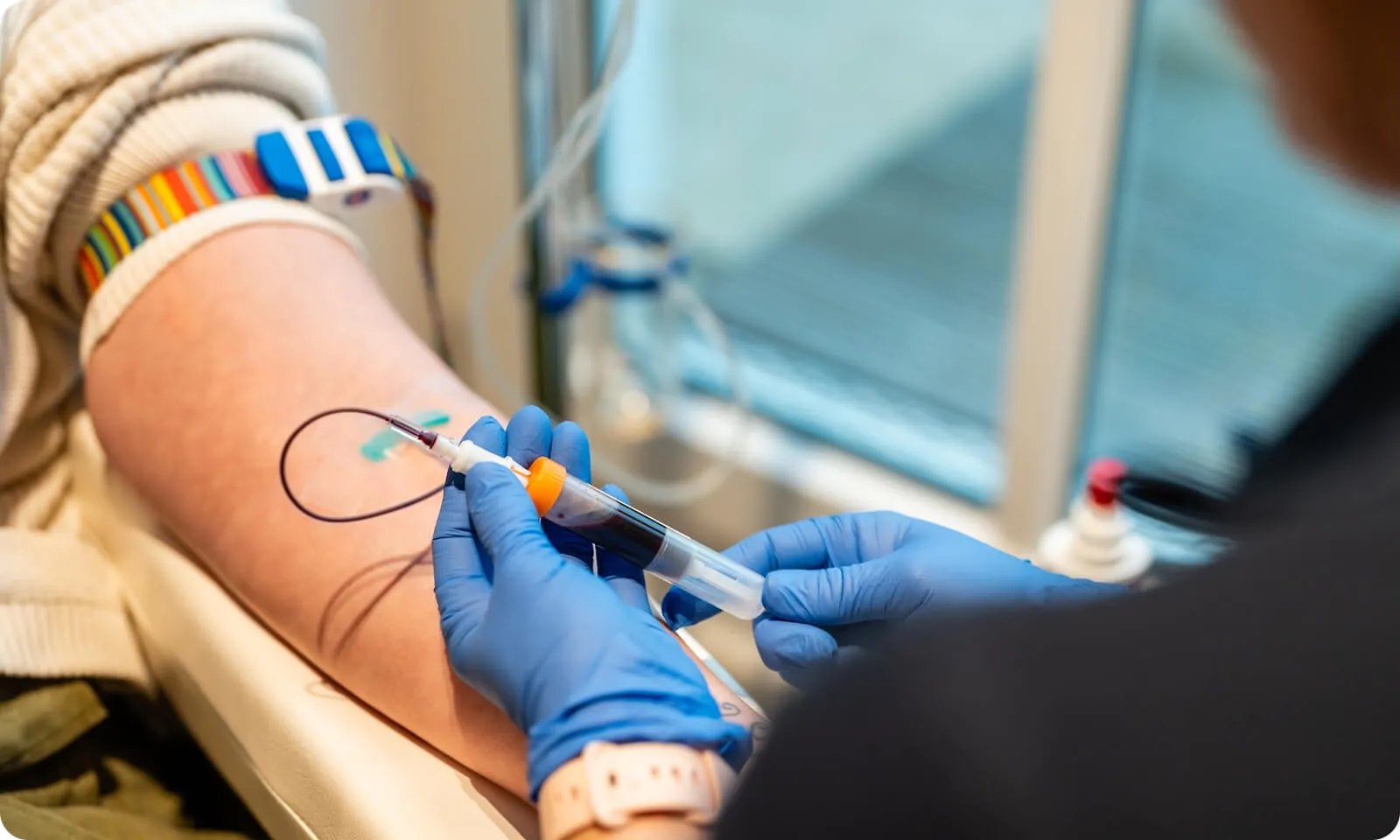Omega-3: Why your body can't do without
17.10.2025

Have you ever wondered why omega-3 fatty acids are constantly referred to as “essential”? It's simple: Your body can't produce them itself, but it desperately needs them — for your Brain, Heart, and Cell Health. A balanced omega-3 level supports many important bodily functions and can help maintain your well-being in the long term.
Brain nutrition: Why omega-3 is essential for your thinking
Did you know that a large part of your brain consists of fat? And that DHA (docosahexaenoic acid) accounts for around 30-40% of these fats? This omega-3 fatty acid ensures that your Nerve cells communicate optimally — which is crucial for concentration, memory and mental fitness. Studies show that low DHA levels are associated with a higher risk of Dementia and Alzheimer's are connected.
But it's not just your brain that benefits: Yours too Mood and mental resilience are related to omega-3. EPA (eicosapentaenoic acid) helps regulate inflammation in the brain, which can counteract depression and anxiety.
Heart health & inflammation — the shield for your body
Omega-3 fatty acids are true Jack of all tradeswhen it comes to your heart health. They help the to regulate blood pressure, to lower triglycerides and can pose the risk of Heart attack and stroke Decrease. But not only that — they work throughout the body anti-inflammatory, which they are particularly valuable in autoimmune diseases, joint problems and chronic inflammation does.
Is plant-based omega-3 enough?
If you eat a plant-based diet, you probably know flaxseeds, chia seeds, or walnuts as sources of omega-3. The problem? These include only ALA (alpha linolenic acid)That your body only Can very poorly convert to DHA and EPA — often only 0.5 to 5%. That means: Without oily fish or algae oil, you won't get enough DHA and EPA.
What happens when there is an omega-3 deficiency?
Permanently low omega-3 levels can affect many areas of your body:
- concentration and memory problems
- Increased risk of cardiovascular disease
- Chronic inflammation and joint pain
- Dry skin, brittle hair and poor wound healing
- Higher vulnerability to depression and anxiety disorders
How do you find out if you have enough omega-3?
Very simple: With a blood test Can you have your omega-3 index determined. This value shows you whether you are adequately supplied with DHA and EPA — or whether it is time to make a change. If your score is too low, you can more oily fish or high-quality algae or fish oil targeted countermeasures.
Conclusion: Omega-3 is not a “nice to have” but essential for your health.
About the author

Editorial team
We are aescolab, a team of medical experts, coaches and entrepreneurs who share one goal: to help people and companies achieve more energy, health and performance.
More interesting articles

Vitamin D: Key to Bones, Immune System and Wellbeing
Vitamin D is much more than just a vitamin — it is a Essential prohormone, which controls numerous vital functions in the body. Not only does it affect bone health, but it also plays a crucial role in the immune system, muscle function, and even brain health. Optimal vitamin D levels are associated with a lower risk of cardiovascular disease, autoimmune diseases, and certain types of cancer.
The problem: In our latitudes, sufficient vitamin D production through sunlight is often not guaranteed — especially during the winter months. Many people therefore unconsciously suffer from a deficiency, which can be associated with fatigue, vulnerability to infections, muscle pain or even depression.
This article shows you why vitamin D is essential for your health, how to identify a deficiency and what you can do to get your levels up to optimal levels.

Blood tests deciphered: Why not all analyses are the same






